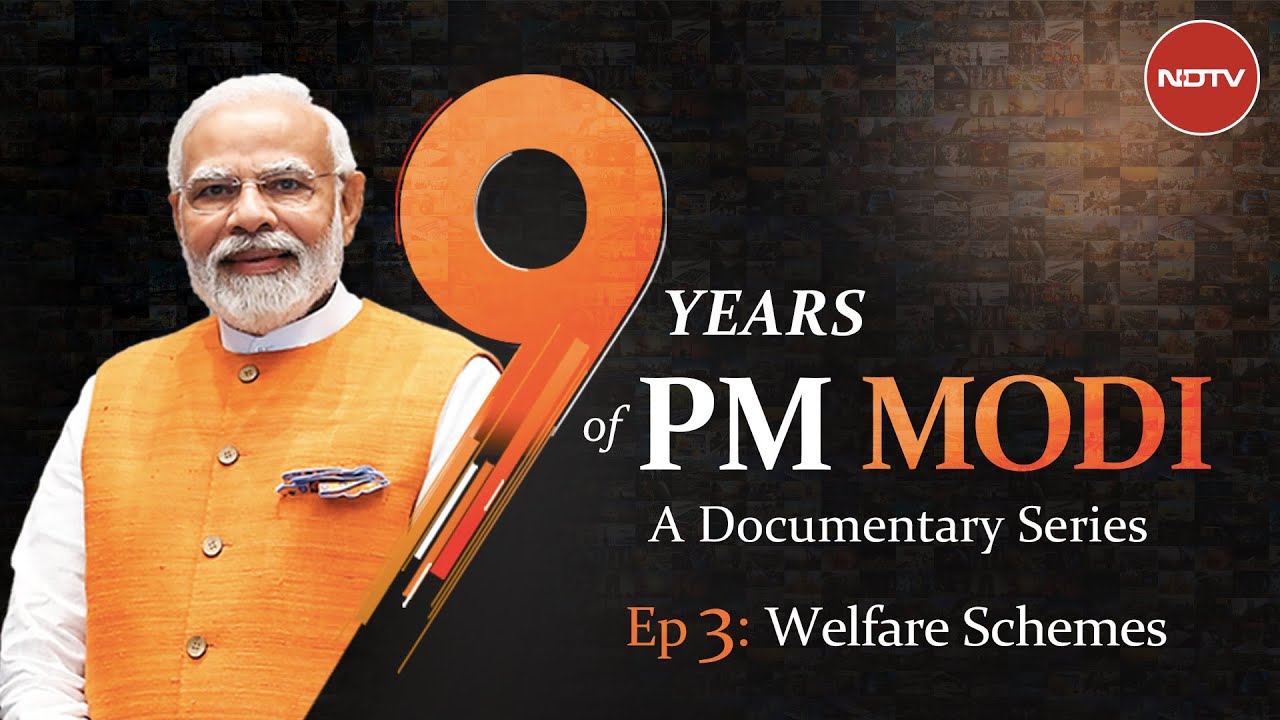9 Years Of Pm Modi: Documentary Series Episode 3 - Welfare Schemes
Unleash Your Creative Genius with MuseMind: Your AI-Powered Content Creation Copilot. Try now! 🚀
In India's remote and impoverished regions, access to clean cooking fuel has become a necessity rather than a luxury. The PM Ujjwala Yojana scheme, launched by Prime Minister Narendra Modi in 2016, aims to make clean cooking fuel, such as LPG, available to rural and deprived households. One such beneficiary is Sumaria Devi, a 45-year-old resident of Rantola Village in Uttar Pradesh's Sonbhadra District. Sumaria Devi, belonging to a scheduled tribe, had been using traditional firewood furnaces for cooking, resulting in constant exposure to harmful smoke and long treks into the jungle to collect firewood.
The scheme has had a significant impact on the lives of women, who are primarily responsible for cooking indoors and suffer the most from indoor pollution. The provision of clean cooking fuel has not only improved their lung health but has also brought a sense of empowerment and a boost in their overall quality of life. Women in villages like Rantola now have access to gas for cooking, reducing indoor pollution and its detrimental effects.
Empowering Farmers with Financial Support
In the fields of Friday Narayan, a marginal farmer in the Manbazar village of Sonbhadra, another flagship scheme of the Modi government, the PM Kisan Yojana, is playing out. This scheme provides income support to farmers who own cultivable land of up to two hectares. Narayan, who owns less than an acre of land, receives an annual income support of 6,000 rupees. While this may not seem like a significant amount, it represents a 25 to 30 percent increase in his annual income.
The PM Kisan Yojana aims to uplift farmers by providing them with financial assistance, with a major focus on boosting the rural economy. The cash payouts, despite multiple challenges, including those faced by landless farmers working as sharecroppers, have succeeded in plowing back money into the rural economy, contributing to local development. The scheme has directly impacted the lives of millions of farmers, providing them with a sense of economic stability and hope for a better future.
Providing Affordable Housing and Equity for Women
In the impoverished and often neglected districts of India, the dream of owning a home has become a reality for families like that of the Mankari couple in Andhra Pradesh. Under the PM Awas Yojana, the government has provided millions of homes to families, offering them not just shelter but also access to basic facilities such as toilets, electricity, water, and gas connections.
One of the significant features of the scheme is the emphasis on the ownership of homes by women. Houses are either given solely in the name of the woman or jointly in the names of the husband and wife. This step towards gender equality and women's empowerment has brought security and confidence to women like the 35-year-old woman in Andhra Pradesh, who was abandoned by her husband. Owning a home has given her the means to support her daughter's education and care for her elderly mother, breaking the cycle of inheritance and loss that had plagued her family for generations.
Empowering Street Vendors and Boosting Local Economy
The streets of Hyderabad, bustling with street vendors around the iconic Charminar, reflect the positive impact of the PM Svanidhi scheme on small businesses. The scheme provides microcredit facilities to street vendors, enabling them to access loans at lower interest rates and paving the way for financial stability. The government's guarantee of the loans provided by microfinance institutions has incentivized regular repayment and digital transactions, benefitting both the street vendors and the overall economy.
From vegetable sellers, street hawkers, barbers, and laundry persons, around 42 lakh street vendors are expected to benefit from this scheme by December 2024. The scheme has not only supported existing businesses but has also helped individuals expand their entrepreneurial ventures, creating a ripple effect on the local economy.
Conclusion
Prime Minister Narendra Modi's welfare schemes have brought about significant positive changes in the lives of millions of Indians. From providing clean cooking fuel to empowering farmers and ensuring affordable housing, these schemes have not only addressed immediate needs but have also laid the foundation for long-term growth and development. The government's focus on delivering these schemes effectively and its emphasis on women's empowerment and financial inclusion have propelled India towards a more prosperous and equitable future.
The scale and impact of these social welfare programs are truly extraordinary, with their benefits reaching all corners of society. India has set an example for the world as it strives to eradicate poverty, improve living conditions, and empower its citizens. While there are still challenges to overcome and incremental reforms to be implemented, the results speak for themselves. The world's largest beneficiary schemes have truly transformed lives and brought about a positive social change from the bottom up.
